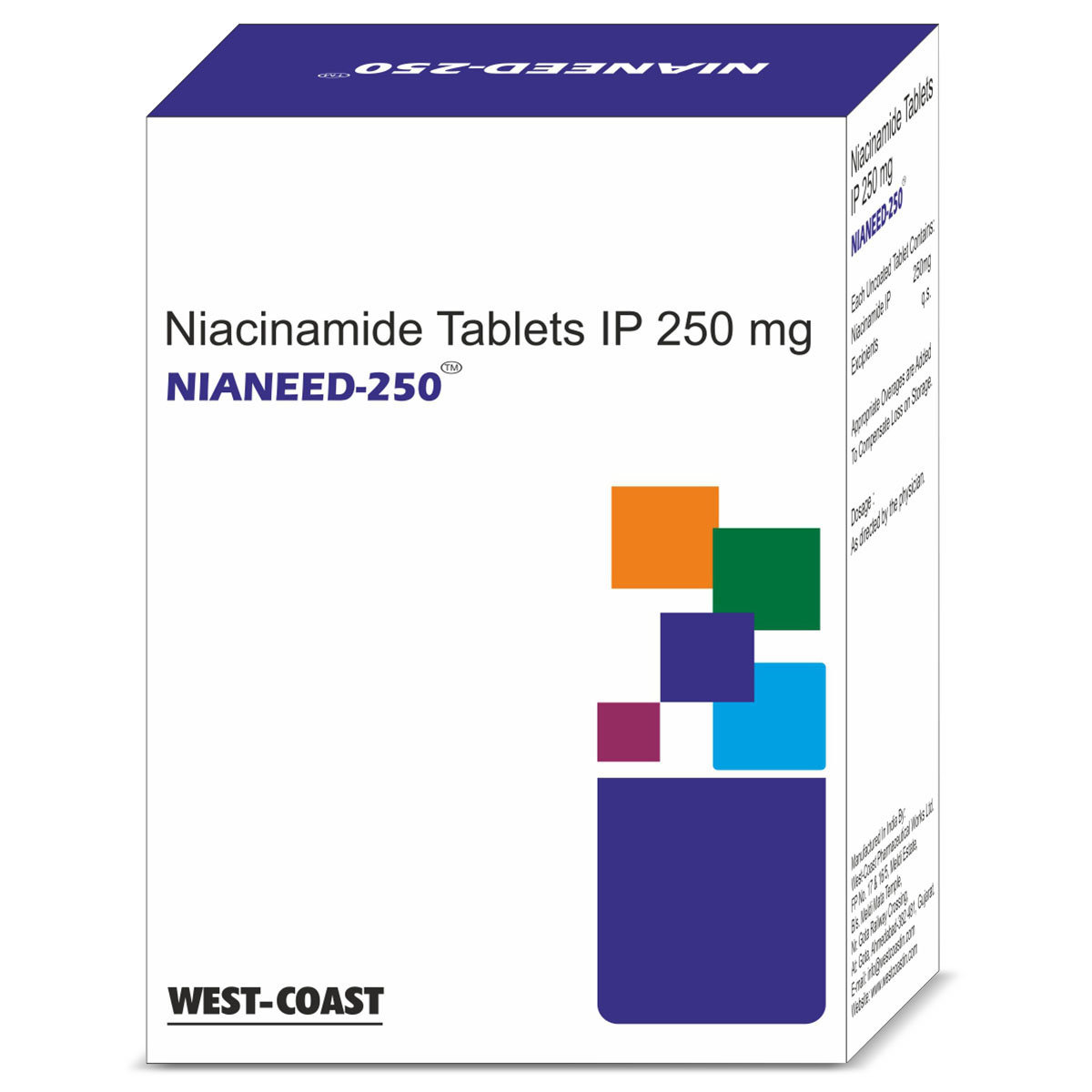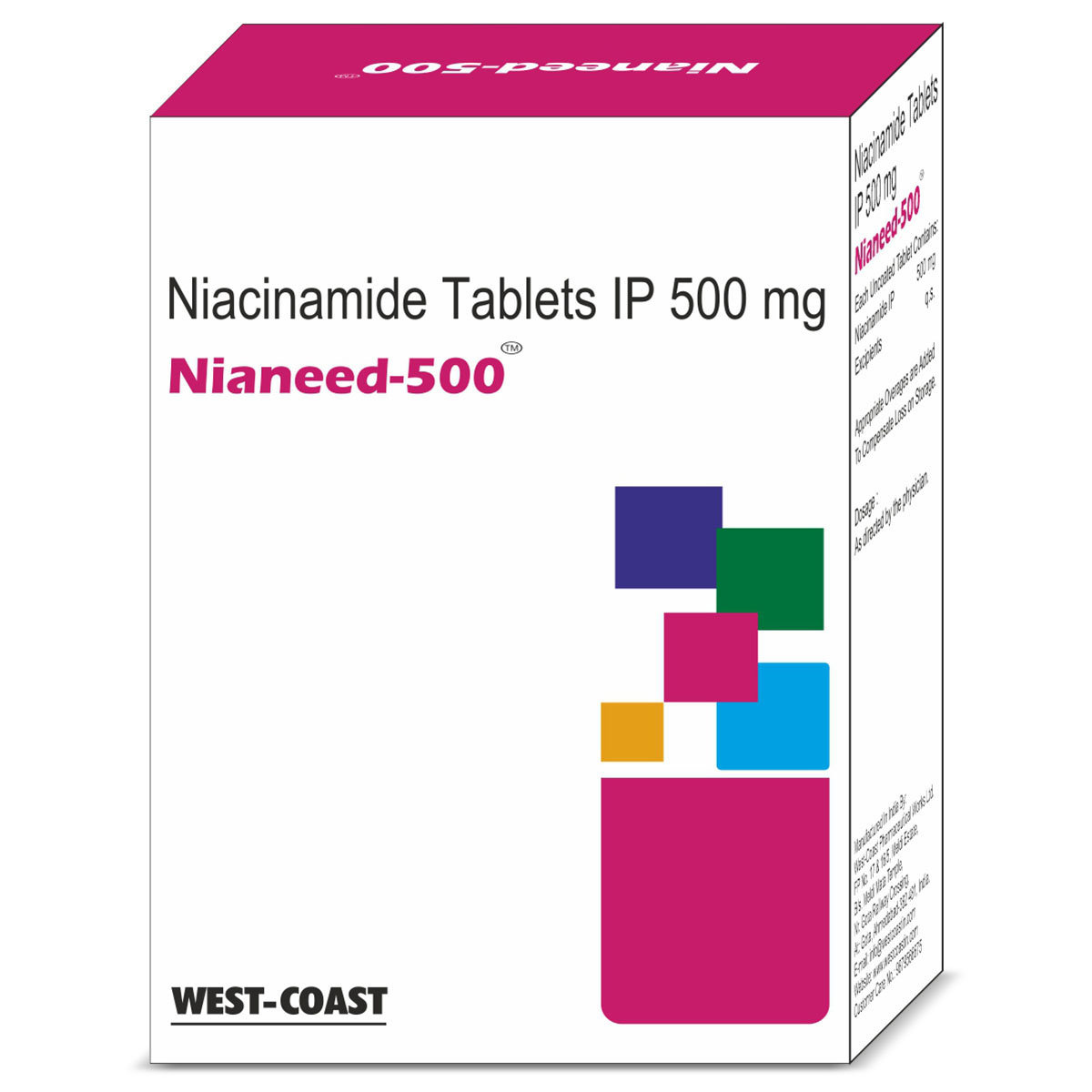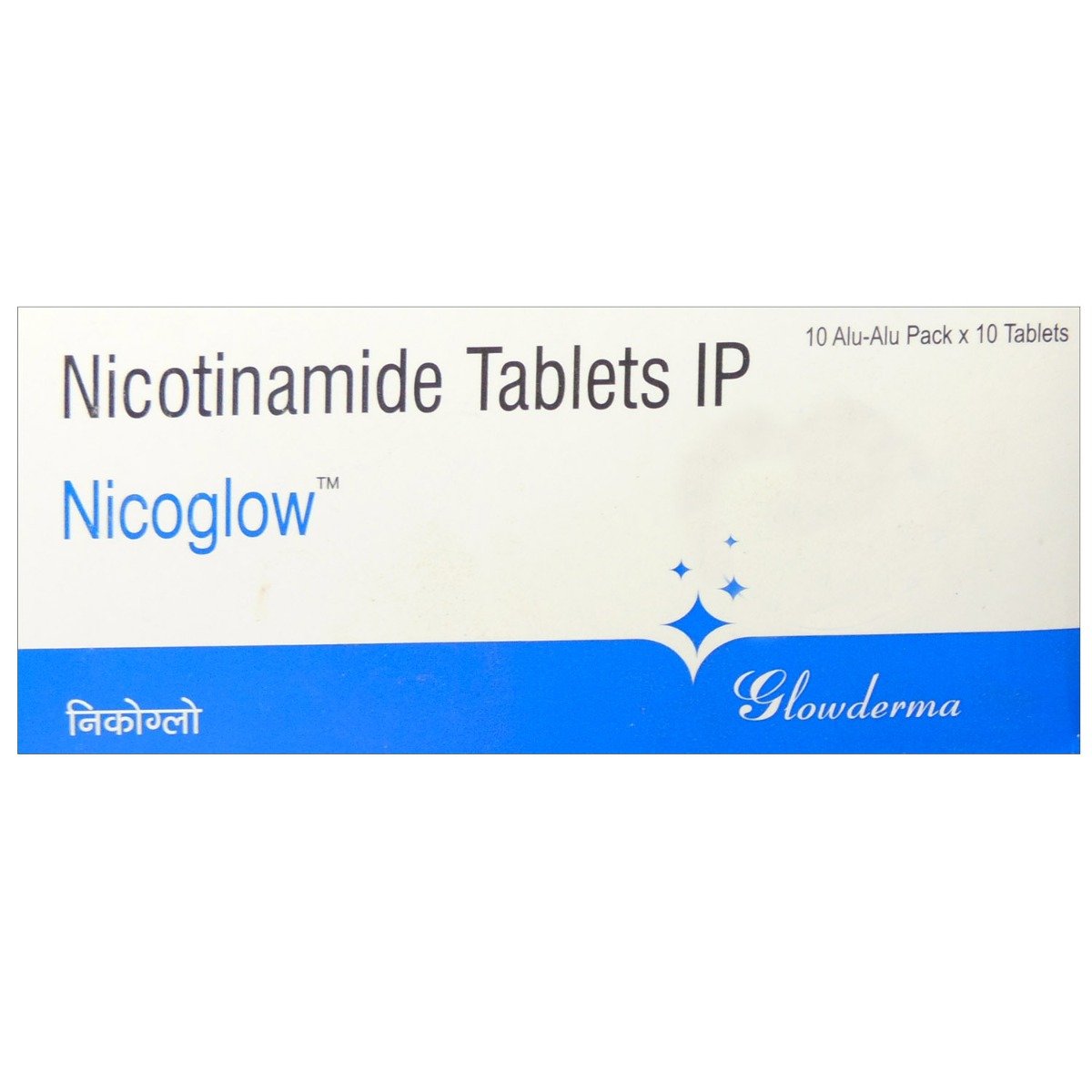Nicotinamide
About Nicotinamide
Nicotinamide belongs to the group of medicines called vitamins used to prevent and treat vitamin deficiencies. It may also be used to treat vitamin B3 deficiency and related conditions such as pellagra. A vitamin deficiency occurs when the body does not absorb or get enough vitamins/nutrients from food.
Nicotinamide contains Nicotinamide, a form of vitamin B3 which is required for the functioning of sugar and fat in the body and the maintenance of healthy cells.
Use Nicotinamide as prescribed by your doctor. In some cases, it may cause side effects such as stomach upset, headache, gas, rash, and dizziness. Most of these side effects do not require medical attention and will resolve gradually over time. However, you are advised to talk to your doctor if the side effects persist or worsen.
Let your doctor know if you are using other medicines, or herbal products before starting Nicotinamide. If you are allergic to any of the components in Nicotinamide, please inform your doctor. Consult your doctor if you are pregnant or breastfeeding. Nicotinamide should be given to children only if prescribed by a doctor.
Uses of Nicotinamide
Medicinal Benefits
Nicotinamide belongs to the group of medicines called vitamins used to treat and prevent vitamin deficiencies. It may also be used to treat vitamin B3 deficiency and related conditions such as pellagra. Nicotinamide contains Nicotinamide which is required for the functioning of sugar and fat in the body and the maintenance of healthy cells.
Directions for Use
- Nicotinamide can be taken with or without food.
- Your healthcare provider will determine the appropriate dosage and frequency based on your condition.
- Take the pill as prescribed by your healthcare provider, usually with a full glass of water.
- Do not crush, chew, or break the pill. Swallow it whole as directed.
- Do not self-adjust the dose or stop taking the medication without consulting your doctor.
Storage
Side Effects of Nicotinamide
- Stomach upset
- Dizziness
- Headache
- Gas
- Rash
Drug Warnings
Do not take Nicotinamide if you are allergic to any of its components. Inform your doctor if you have diabetes, gall bladder disease, stomach or intestinal ulcers, kidney/liver problems, or if you undergo dialysis. Consult a doctor if you are pregnant or breastfeeding. Nicotinamide should be given to children only if prescribed by the doctor. Let your doctor know if you are using a prescription, non-prescription drugs, or herbal products before starting Nicotinamide.
Drug Interactions
Drug-Drug Interactions: Nicotinamide may interact with anti-convulsant (carbamazepine, primidone) and anti-platelet agents/anticoagulants.
Drug-Food Interactions: No interactions found/established.
Drug-Disease Interactions: Inform your doctor if you have diabetes, gall bladder disease, or stomach/intestinal ulcers.
Drug-Drug Interactions Checker List:
Safety Advice

Alcohol
consult your doctorIt is unknown if alcohol interacts with Nicotinamide, so please consult a doctor.

Pregnancy
safe if prescribedNicotinamide is likely safe to use during pregnancy if prescribed by the doctor. Please consult your doctor before taking Nicotinamide.

Breast Feeding
safe if prescribedNicotinamide is likely safe to use while breastfeeding if prescribed by the doctor. Please consult your doctor before taking Nicotinamide.

Driving
cautionIt is unknown whether Nicotinamide affects your ability to drive. Nicotinamide may cause dizziness, so drive or operate machinery only if you are alert.

Liver
consult your doctorLimited data is available regarding the usage of Nicotinamide in patients with liver impairment. Please consult your doctor.

Kidney
consult your doctorLimited data is available regarding the usage of Nicotinamide in patients with kidney impairment. Please consult your doctor.

Children
safe if prescribedPlease consult your doctor if you have any concerns regarding the use of Nicotinamide in children.
Habit Forming
Diet & Lifestyle Advise
- Follow a well-balanced diet.
- Exercising regularly helps in improving overall health.
- Rest well, and get plenty of sleep.
- Avoid smoking and alcohol consumption.
- Meditation and yoga can help lower stress.
- Avoid processed and fried food.
Patients Concern
Disease/Condition Glossary
Vitamin deficiencies: When the body does not absorb enough vitamins or other nutrients from food, a vitamin deficiency develops. Minerals and vitamins are essential for healthy body development and disease prevention. Even when you consume vitamins, your body occasionally struggles to absorb them. A vitamin deficiency can cause neurological diseases, a weakened immune system, skin issues, digestive issues, abnormal bone growth, and other health issues.
FAQs
Nicotinamide is used to treat Vitamin deficiency.
Nicotinamide is required for the functioning of sugar and fat in the body and the maintenance of healthy cells.
Consult your doctor if you are diabetic as Nicotinamide might increase blood sugar levels. Regularly monitor blood sugar levels while on treatment with Nicotinamide.
Nicotinamide is also known as Niacinamide. Do not confuse niacinamide with nicotinamide riboside, niacin, inositol nicotinate, NADH (Nicotinamide adenine dinucleotide), or L-tryptophan. These are not the same.
Nicotinamide is naturally found in fish, meat, eggs, milk, cereals and green vegetables.
Avoid taking Nicotinamide if you have stomach or intestinal ulcers as it might make ulcers worse. Consult your doctor if you have any concerns.
Nicotinamide might slow blood clotting and increase the risk of bleeding. Taking it with other drugs (anti-platelet agents/anti-coagulants) or supplements (garlic, ginger, ginkgo, nattokinase, and Panax ginseng) with similar effects may increase the risk of bleeding in some people.
Absolutely, Nicotinamide works well when used for the recommended amount of time and at the dose that your doctor has suggested.
Nicotinamide is usually taken orally, typically once or twice a day. Follow the directions on the product label or as prescribed by your doctor. If you have any questions, please check with the healthcare personal.









